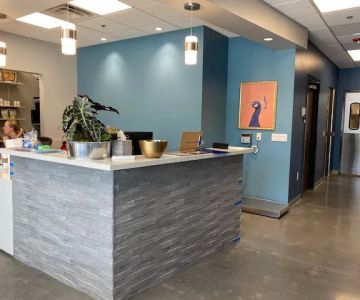How to Become a Poultry Veterinarian: A Complete Guide
- What is a Poultry Veterinarian?
- Poultry Veterinarian Career Path
- Educational Requirements to Become a Poultry Veterinarian
- Skills Needed for a Poultry Veterinarian
- A Day in the Life of a Poultry Veterinarian
- Job Opportunities for Poultry Veterinarians
What is a Poultry Veterinarian?
Becoming a poultry veterinarian is a unique and rewarding career path for individuals passionate about animal health and agriculture. As a poultry vet, your primary responsibility is to provide medical care and treatment for chickens, turkeys, ducks, and other poultry species. This role is incredibly important, especially in large-scale farming and commercial poultry operations, where the health and well-being of the birds directly impact food safety and production levels. I’ve always admired how poultry veterinarians combine their love for animals with their commitment to ensuring safe and healthy food sources for the public.
Poultry veterinarians work on a variety of issues, from disease prevention and treatment to ensuring the overall health of birds in farms. Their expertise plays a crucial role in preventing outbreaks of diseases that could potentially impact both the poultry industry and human health, such as avian influenza or salmonella. In addition to clinical care, poultry veterinarians also provide valuable advice to farm operators on biosecurity practices, nutrition, and overall farm management practices.
Poultry Veterinarian Career Path
If you’re interested in becoming a poultry veterinarian, understanding the career path is the first step. The journey to this specialized field is similar to that of other veterinary disciplines, but with additional focus on avian species. For me, knowing the exact requirements and steps for entering this profession made the process much more clear.
The path begins with earning a bachelor’s degree, typically in animal science, biology, or another related field. During this time, it’s helpful to gain hands-on experience with animals, particularly poultry, through internships, volunteering, or working at farms. This experience is highly valued by veterinary schools and can provide an edge during the application process.
After obtaining a bachelor’s degree, the next step is to attend a veterinary school accredited by the American Veterinary Medical Association (AVMA). This is a rigorous program that typically lasts four years and leads to a Doctor of Veterinary Medicine (DVM) degree. During veterinary school, students are trained in general veterinary care but can focus on avian health through elective courses or specialized tracks.
Upon earning the DVM degree, aspiring poultry veterinarians often choose to pursue additional training in poultry medicine. This could involve internships or residencies specifically geared toward poultry health, which provide further hands-on experience and in-depth knowledge of the field. Some veterinarians also choose to earn certifications from professional bodies like the American Association of Avian Pathologists (AAAP) to enhance their credentials and demonstrate expertise in poultry medicine.
Educational Requirements to Become a Poultry Veterinarian
The educational path to becoming a poultry veterinarian requires a combination of a strong academic foundation and practical experience. When I was exploring veterinary careers, I learned that veterinary schools have high academic standards, and meeting these expectations is crucial to becoming a poultry vet.
First, you need to complete a bachelor's degree with a focus on relevant subjects, such as animal science, biology, or chemistry. Maintaining a high GPA during this time is important, as veterinary schools are competitive, and admission requires a strong academic record. It’s also beneficial to gain experience with animals during this phase, particularly poultry, which will provide an understanding of the unique health concerns and management practices specific to poultry farming.
After completing a bachelor’s degree, the next step is to enter veterinary school. Veterinary programs are rigorous and require a deep understanding of animal anatomy, physiology, disease management, and medical treatments. The curriculum generally covers a broad range of species, but many veterinary schools offer specialized courses in avian health or allow students to choose electives related to poultry medicine.
During veterinary school, gaining hands-on experience is critical. This is where internships and clinical rotations become particularly valuable. Many veterinary schools offer internships with farms or agricultural companies, providing students with direct exposure to poultry health management. For those seeking a career as a poultry veterinarian, these internships are essential for building the necessary skills and knowledge of poultry diseases, nutrition, and biosecurity measures.
Skills Needed for a Poultry Veterinarian
In addition to the formal education, there are specific skills that make someone an effective poultry veterinarian. I’ve found that the best poultry vets combine technical knowledge with strong interpersonal skills. Here are some of the key skills needed:
- Strong Analytical Skills: Veterinary professionals need to be able to diagnose diseases and conditions, which requires a deep understanding of animal biology and the ability to analyze symptoms and test results effectively.
- Attention to Detail: Poultry veterinarians must closely monitor flocks and detect any signs of illness or distress early on. This is particularly important when managing large-scale poultry farms, where diseases can spread quickly if not caught early.
- Communication Skills: Poultry vets need to work closely with farmers, farm managers, and agricultural businesses. Clear communication is essential when explaining health management strategies, disease prevention methods, and treatment plans.
- Knowledge of Veterinary Tools and Technology: Understanding and effectively using veterinary tools, diagnostic equipment, and medical technology is crucial for a poultry vet. From administering vaccines to interpreting lab results, this technical knowledge is essential.
A Day in the Life of a Poultry Veterinarian
As someone who has worked with veterinarians in various capacities, I can say that no two days are the same for a poultry vet. A typical day could include a combination of farm visits, diagnosing illnesses in poultry, performing health checkups, and providing consultations to farmers regarding flock management practices.
Poultry veterinarians often travel to farms to conduct routine health assessments, check on the conditions of poultry houses, and ensure proper biosecurity measures are in place. During these visits, they may also provide advice on vaccinations, nutrition, and disease prevention. If there’s an outbreak or a potential health crisis, poultry vets are on the front lines, working quickly to diagnose and contain the issue.
Another important part of their work is managing disease outbreaks, which require quick thinking and a methodical approach. Poultry vets need to act swiftly to protect not just the health of the birds but also to safeguard the larger agricultural industry from disease transmission.
Job Opportunities for Poultry Veterinarians
Once you’ve completed your education and training, the job opportunities for poultry veterinarians are vast and diverse. Many poultry vets find employment in commercial poultry farms, agricultural companies, or government agencies that focus on animal health and food safety. There are also opportunities in academia and research, where poultry vets can contribute to advancing veterinary medicine and animal health through scientific studies.
In addition to farm-based positions, some poultry veterinarians work for pharmaceutical companies that develop vaccines or medications for poultry diseases. There is also growing demand for veterinarians who specialize in animal welfare and biosecurity consulting for poultry farms, which is an area I believe will continue to expand as the industry grows more focused on sustainability and ethical practices.
For those interested in pursuing this career, understanding how to become a poultry veterinarian involves more than just meeting educational requirements. It’s a career driven by passion, knowledge, and a deep commitment to ensuring the health and well-being of poultry. If you’re considering this rewarding profession, visit Dentistry Toothtruth for more information on career resources, certifications, and advice on becoming a poultry vet.











